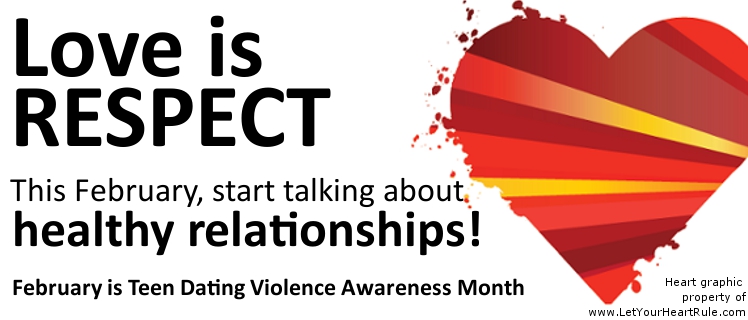During the past 12 months, one in 10 teens said they have been hit or physically hurt on purpose by a boyfriend or girlfriend at least once. And nearly half of all teens in relationships say they know friends who have been verbally abused.” say House of Ruth statistics.
Is your child a victim of teen dating violence?
February is the teen dating violence and prevention awareness week. Teen dating violence is often overlooked in the eyes of the adults, but very real in the world of teenagers. It is important to be aware of these issues and prevent them before things get any worse.
Statistics
- More than one in three 11-12 year olds (37%) say they have been in a boyfriend/girlfriend relationship.
- 62% of tweens who have been in a relationship say they know friends who have been verbally abused (called stupid, worthless, ugly, etc) by a boyfriend/girlfriend.
- Only half of all tweens (51%) claim to know the warning signs of a bad/hurtful relationship.
- 69% of all teens who had sex by age 14 said they have gone through one or more types of abuse in a relationship.
More statistics available on the icadvinc.org website.
How to spot the signs
Violence comes in different shades. Verbal or emotional dating abuse may include name calling, yelling and screaming, embarrassing the significant other in public, intimidation, negative rumours, forceful isolation, threatening violence or harm, making racial slurs…
Physical dating abuse may include scratching, kicking, pushing, choking, biting, slapping, shoving, pulling hair, punching and pinching.
Sexual dating abuse involves unwanted touching, kissing or sexual behaviours, violent sexual activity, date rape and letting the partner use birth control or protection.
Chilling long-term effects of the victims
- Depression
- Suicide
- Anxiety
- Early pregnancies
- Eating disorders
- Risk of sexual diseases
- Further domestic violence
“...He had to make sure I wasn’t doing anything. He’d find out from his friends if I was talking to someone, and we’d get in a big argument. …He’d hit me, push me, sock me in the stomach and in the head. He was smart. He knew not to leave me with bruises that showed.” Barrie Levy
Don’t forget about technology
Mass media appears to be one of the biggest contributors to teen’s awareness regarding safe and unsafe relationships as it pressures teens to date. Teenagers across the media are often stereotyped and therefore assume they have to reach those standards and start romantic relationships before they are ready.
With the rise of smart phone devices and online dating, teenagers also became a subject of sexting, cyberbullying and invasion of privacy.
- 30% of teens say they’ve been text messaged up to 30 times an hour by a partner trying to find out where they are, what they’re doing or who they are with.
- 22% of teens have been asked to engage in sex via cell phone or the internet when they do not want to.
- 11% of teens report that a partner has shared private or embarrassing photos or videos of them.
What can YOU do to help?
- Be aware and supportive.
- Be a role model!
- Start with yourself – promote healthy relationships in the family
- Talk to your children before issues arise – don’t judge, but listen.
- Ask your school to host discussions on the subject.
- Parental control apps
- Eighty one percent of parents believe teen dating violence is not an issue or admit they don’t know if it’s an issue according to the teen dating violence awareness campaign loveisrespect.org
Don’t be scared to get help
- CDC’s Dating Matters: Strategies to Promote Healthy Teen Relationships www.cdc.gov/violenceprevention/datingmatters
- National Dating Abuse Helpline and Love is Respect: 1-866-331-9474 or text 77054 or www.loveisrespect.org
- National Domestic Violence Hotline 1-800-799-SAFE (7233)
- National Sexual Assault Hotline 1-800-656-HOPE (4673)
- National Sexual Violence Resource Center www.nsvrc.org
- International Directory of Domestic Violence Agencies
Useful websites
- http://www.loveisrespect.org/
- http://www.breakthecycle.org/
- Teen Dating Violence Fact Sheet
- Teen Dating Violence Publication
“She could just pack up and leave, but she does not visualize what’s beyond ahead.” ― Núria Añó

